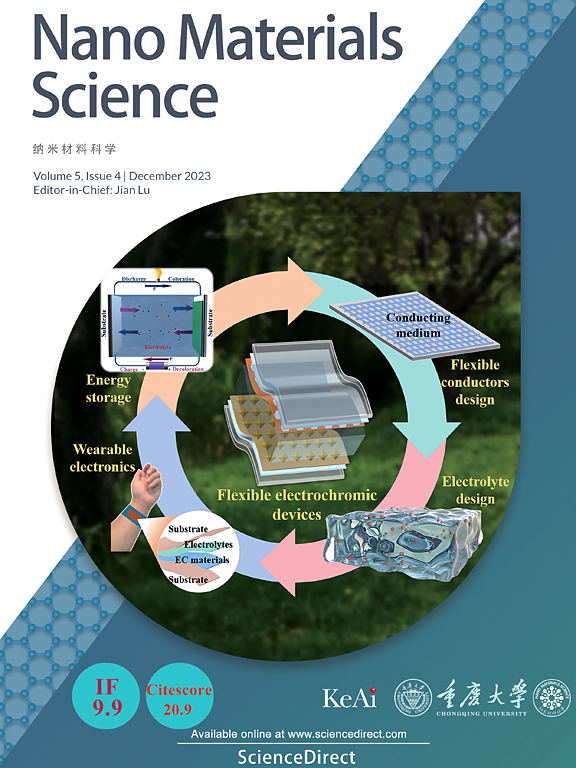纳米材料在防污中的应用:综述
IF 17.9
2区 材料科学
Q1 Engineering
引用次数: 0
摘要
随着海洋经济的不断发展和海洋基础设施的不断升级,日益增多的海洋工程装备面临着严重的海洋污损问题。然而,由于海洋环境的复杂性和污损生物的多样性,开发海洋防污材料和防污技术极为困难。因此,开发先进材料是解决海洋污损问题的关键突破口。尺寸小、微结构可控的纳米材料具有优异的防污效率,在各种防污领域大有可为。本文从防污纳米材料的种类、防污技术、防污的潜在应用等方面综述了近年来防污纳米材料和技术的发展。防污纳米材料分为非金属基纳米材料、金属基纳米材料、聚合物纳米材料、复合纳米材料和其他材料。此外,还讨论了防污纳米材料的潜在应用,包括海洋防污、水处理和医疗防污。最后,我们提出了防污纳米材料的研究和发展趋势展望。本综述可促进新型高效防污纳米材料的开发及其潜在的商业应用。本文章由计算机程序翻译,如有差异,请以英文原文为准。
Application of nanomaterials in antifouling: A review
With the continuous development of the marine economy and the upgrading of marine infrastructure, the increasing marine engineering equipment is facing a serious problem of marine fouling. However, developing marine antifouling materials and antifouling technologies is extremely difficult due to the complexity of the marine environment and the biodiversity of the fouling. Therefore, it is the key breakthrough to develop advanced materials for solving marine fouling problems. Nanomaterials with small dimensions and controlled micro-structure have outstanding antifouling efficiency and great promise for various antifouling fields. Herein, the development of antifouling nanomaterials and technologies in recent years are reviewed for aspects of types of antifouling nanomaterials, technologies of antifouling, and potential application of antifouling. The antifouling nanomaterials are categorized as non-metal-based nanomaterials, metal-based nanomaterials, polymeric nanomaterials, composite nanomaterials, and others. Additionally, the potential applications of antifouling nanomaterials, including marine antifouling, water treatment, and medical antifouling are discussed. Finally, we proposed the perspectives of research and development trends of the antifouling nanomaterials. This overview may promote the development of new efficient antifouling nanomaterials and develop their potential commercial applications.
求助全文
通过发布文献求助,成功后即可免费获取论文全文。
去求助
来源期刊

Nano Materials Science
Engineering-Mechanics of Materials
CiteScore
20.90
自引率
3.00%
发文量
294
审稿时长
9 weeks
期刊介绍:
Nano Materials Science (NMS) is an international and interdisciplinary, open access, scholarly journal. NMS publishes peer-reviewed original articles and reviews on nanoscale material science and nanometer devices, with topics encompassing preparation and processing; high-throughput characterization; material performance evaluation and application of material characteristics such as the microstructure and properties of one-dimensional, two-dimensional, and three-dimensional nanostructured and nanofunctional materials; design, preparation, and processing techniques; and performance evaluation technology and nanometer device applications.
 求助内容:
求助内容: 应助结果提醒方式:
应助结果提醒方式:


